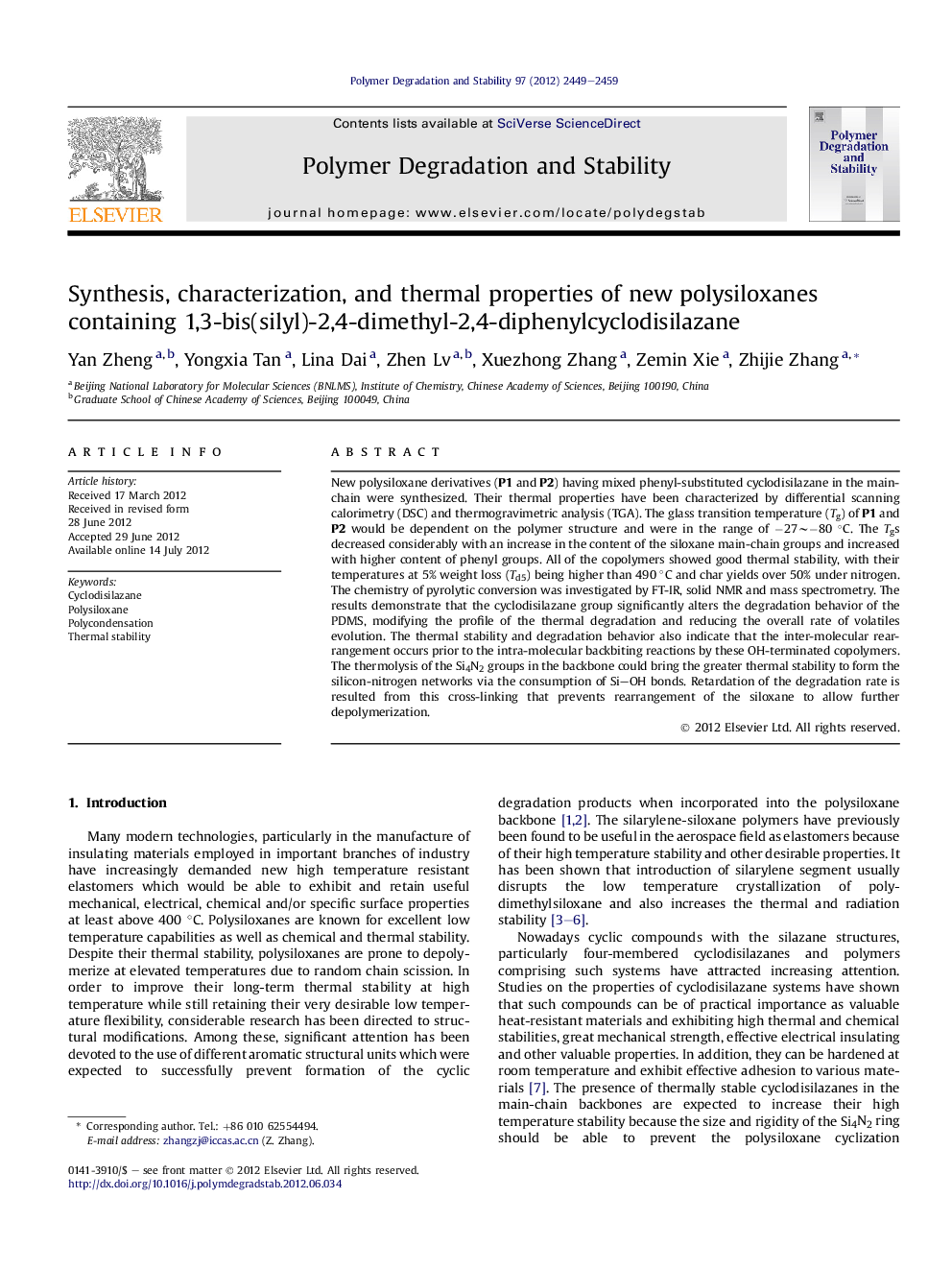| Article ID | Journal | Published Year | Pages | File Type |
|---|---|---|---|---|
| 5202594 | Polymer Degradation and Stability | 2012 | 11 Pages |
Abstract
New polysiloxane derivatives (P1 and P2) having mixed phenyl-substituted cyclodisilazane in the main-chain were synthesized. Their thermal properties have been characterized by differential scanning calorimetry (DSC) and thermogravimetric analysis (TGA). The glass transition temperature (Tg) of P1 and P2 would be dependent on the polymer structure and were in the range of â27â¼â80 °C. The Tgs decreased considerably with an increase in the content of the siloxane main-chain groups and increased with higher content of phenyl groups. All of the copolymers showed good thermal stability, with their temperatures at 5% weight loss (Td5) being higher than 490 °C and char yields over 50% under nitrogen. The chemistry of pyrolytic conversion was investigated by FT-IR, solid NMR and mass spectrometry. The results demonstrate that the cyclodisilazane group significantly alters the degradation behavior of the PDMS, modifying the profile of the thermal degradation and reducing the overall rate of volatiles evolution. The thermal stability and degradation behavior also indicate that the inter-molecular rearrangement occurs prior to the intra-molecular backbiting reactions by these OH-terminated copolymers. The thermolysis of the Si4N2 groups in the backbone could bring the greater thermal stability to form the silicon-nitrogen networks via the consumption of Si-OH bonds. Retardation of the degradation rate is resulted from this cross-linking that prevents rearrangement of the siloxane to allow further depolymerization.
Related Topics
Physical Sciences and Engineering
Chemistry
Organic Chemistry
Authors
Yan Zheng, Yongxia Tan, Lina Dai, Zhen Lv, Xuezhong Zhang, Zemin Xie, Zhijie Zhang,
